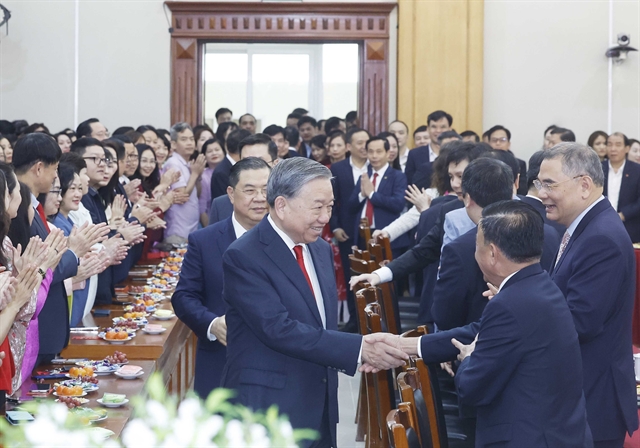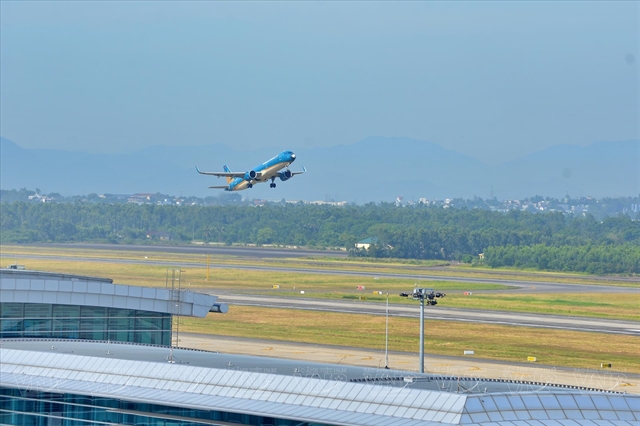 Society
Society
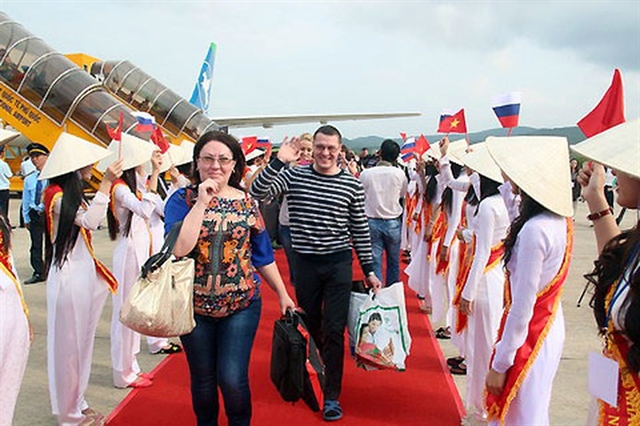
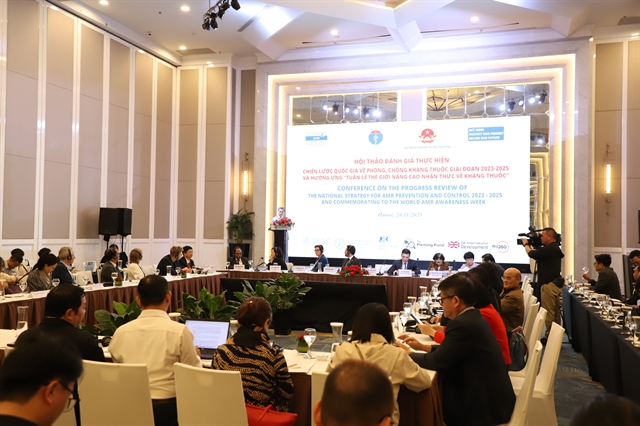
|
| Dr Trần Văn Thuấn, Deputy Minister of Health, adresses the meeting in Hà Nội on 24 November. — VNS Photo Thanh Hải |
HÀ NỘI — Local and international health experts called for further investment and strategic action to promote understanding and action on antimicrobial resistance (AMR) during a meeting in Hà Nội on Monday (November 24).
The event was jointly held by the Ministry of Health, the Ministry of Agriculture and Environment, and the World Health Organisation (WHO) to mark World Antimicrobial Resistance Awareness Week (November 18–24) and to review the implementation of the National Strategy on AMR Prevention and Control for the 2023–25 period.
World Antimicrobial Resistance Awareness Week is a global campaign aimed at promoting understanding and action on antimicrobial resistance.
The World Health Organisation has announced the 2025 theme: ‘Act Now: Protect Today, Secure Our Future’ to underscore the urgent need for strong and unified action to address antimicrobial resistance.
Speaking at the meeting, Dr Trần Văn Thuấn, Deputy Minister of Health, said: “Antimicrobial resistance is no longer a challenge of the future – it is threatening our health, food security and socio-economic development every single day. We call on all sectors, all levels, and the entire society to ‘Act Now: Protect Our Present, Secure Our Future'.”
Experts said that AMR is threatening our health, food systems, environment, and economy. This is not a challenge of the future – it is an issue unfolding every day. Drug-resistant infections are increasing, causing millions of deaths annually, while awareness, investment, and action remain limited.
Multiple factors have accelerated the global threat of AMR, including the overuse and misuse of medicines in humans, livestock, and agriculture, as well as poor access to clean water and sanitation. Việt Nam is also part of this global context of rising AMR.
Experts suggested that investing in AMR prevention is a smart move for a safer and healthier future. They called for prioritising long-term investment and strategic action across human, animal and environmental health. Strengthening surveillance systems, ensuring equitable access to quality medicines and diagnostics, fostering innovation and building resilient systems to withstand emerging threats all require sustained commitment and resources.
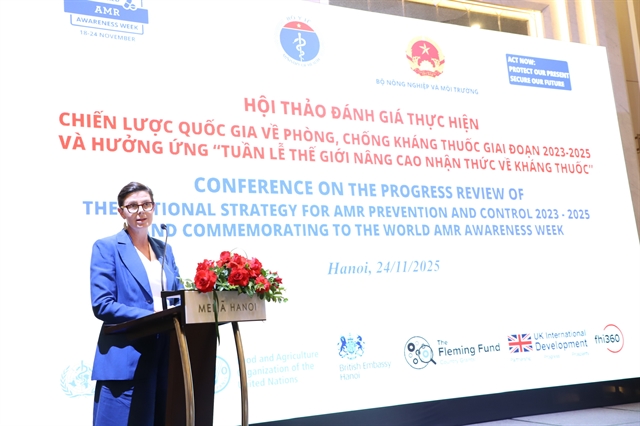
|
| Dr Angela Pratt, WHO Representative in Việt Nam, speaks at the meeting in Hà Nội on 24 November. — VNS Photo Thanh Hải |
Dr Angela Pratt, WHO Representative in Việt Nam, added that: “WHO will continue to work alongside the Government of Việt Nam to expand microbiological surveillance, strengthen laboratory capacity, and promote the responsible use of antibiotics."
Việt Nam has made significant progress in responding to AMR. In 2023, the Prime Minister approved the National Strategy on Antimicrobial Resistance Prevention and Control for the period 2023–2030. This strategy reflects the efforts and commitment of the Vietnamese Government, in collaboration with the WHO and other international partners, to combat the rise of AMR.
It emphasises proactive participation and coordination among sectors, health, agriculture-environment, and industry and trade, from central to local levels, across human health, veterinary and environmental domains.
The strategy sets out four specific objectives – to raise awareness among local authorities and improve understanding among healthcare workers, veterinarians and the public on AMR prevention and control; to strengthen AMR surveillance systems to provide timely alerts on the emergence, spread, extent, and trends of resistant microorganisms; to reduce the transmission of microorganisms and infectious diseases; and to ensure the rational, safe and responsible use of antimicrobial medicines in humans and animals.
The Ministry of Health and the Ministry of Agriculture and Environment have also approved the National Action Plans for the human health and agriculture sectors, outlining clear targets for awareness and education, surveillance and research, infection prevention and control, and optimising antimicrobial use.
Dr Phùng Đức Tiến, Deputy Minister of Agriculture and Environment, said: “Antimicrobial resistance is not only a challenge in healthcare but also directly impacts agriculture and the environment.
"We are committed to continuing close coordination with the Ministry of Health and related sectors to implement measures for managing antibiotic use in livestock, agriculture and environmental treatment in a sustainable manner, aiming to protect public health and ensure national food security”. — VNS


